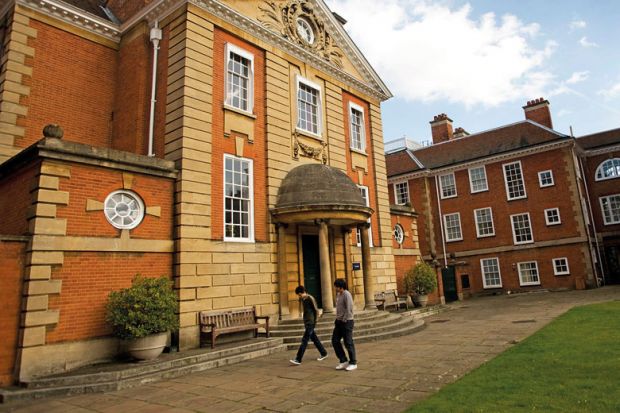A University of Oxford college has been accused of “inadvertently legitimising quackery” after it agreed to host a homeopathy conference next month.
Lady Margaret Hall, Oxford will stage the Society of Homeopaths’ annual general meeting on 18 March despite claims that it is helping to give credibility to a pseudoscience.
According to the Good Thinking Society – a charity established by science writer and alternative medicine critic Simon Singh – several members of the society’s board hold “dangerous” views on homeopathy, including advocating its use to treat HIV and Aids in Africa and autism in the UK.
Lady Margaret Hall, which is led by Alan Rusbridger, who employed Mr Singh and Bad Science writer Ben Goldacre while he was editor of The Guardian, denied that it was lending credibility to the Society of Homeopaths. It had a “purely commercial arrangement” with the society and hosting the event “does not imply that LMH in any way endorses the organisation”, it said.
However, Michael Marshall, project director of the Good Thinking Society, claimed that the college was “inadvertently legitimising quackery” by staging the event.
“Quackery often seeks the trappings of credibility,” said Mr Marshall.
“Learning institutions such as universities and science museums owe it to themselves and the public to ensure their hard-earned reputations and credibility are not extended to events and organisations that do not deserve them and can cause genuine harm to the public,” he added.
While recognising that such events generated significant funds for academic institutions, Mr Marshall said that it was “naive” to pretend that there was no reputational cost to the college, whose alumni include Edith Bülbring, the late pharmacology professor, and Baroness Warnock, the philosopher.
“Academic institutions can choose to decline such bookings or turn a blind eye and take the money – if they accept such bookings, with the cash comes a trade-off: the name and reputation of the institution inevitably adds gloss to the pseudoscientific event, while tarnishing the reputation of the university,” he said.
The booking is the latest controversy involving the use of university premises to promote controversial medical theories or pseudoscience.
Regent’s University London was recently the setting for a screening of Vaxxed, the anti-vaccine film directed by Andrew Wakefield, the disgraced doctor who fraudulently claimed that there was a link between the measles, mumps and rubella vaccine and the appearance of autism. Regent’s insisted that the nature and content of the event was withheld from it, and ended its 18-year relationship with the Centre for Homeopathic Education, which organised the event.
Since then, Regent’s has cancelled a planned £180-a-head homeopathy event due to take place on its grounds.
In a statement, Lady Margaret Hall said that it was “impractical to cancel the booking” but Mr Rusbridger was “happy for our governing body to re-examine our approach concerning the hospitality wing of the college and see whether it needs revising in light of the concerns but also taking into account the erosion of free speech on university campuses”.
However, Mr Marshall believed that it was wrong to conflate the controversy with freedom of speech given that attendees would not be challenged by critical voices.
“This is an all-ticket, closed shop, back-slapping exercise – this event is not about open debate,” he said.




